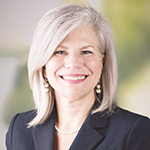
When a rare snowstorm hit large swaths of Texas in January, numerous CHRISTUS Health clinics had to cancel and reschedule appointments, answer patients' questions and provide them with updates.
Nurses with a company called Conduit Health Partners, which CHRISTUS signed on with last year to handle such calls, were able to contact all affected patients to notify them of the cancellations, work with them to set up new appointments, and field questions and concerns. The nurses handled more than 3,000 calls in one day.

"We even found that since patients had access to these nurses by phone, patient satisfaction increased," said Lisa Lilley, CHRISTUS vice president of ambulatory quality and risk. "It was a huge win."
CHRISTUS is among more than two dozen organizations that have signed on with Conduit Health Partners. Many more engage Conduit through a subcontractor relationship. Conduit, which is a for-profit subsidiary of Bon Secours Mercy Health, provides around-the-clock nurse triage, patient transfer, virtual care, patient scheduling and other solutions that improve access to care.

When companies outsource these functions to Conduit, experts there can save employees time, increase patient engagement and satisfaction, get access to data about interactions with patients and get analysis on their business operations, said Cheryl Dalton-Norman, Conduit founder and president.
Lessons from for-profits
Dalton-Norman began her career in nursing in 1983 at St. Mary's Hospital in Knoxville, Tennessee, a Sisters of Mercy hospital that would eventually become part of the Catholic Health Partners system. By the
time Health Management Associates acquired that hospital in 2011, Dalton-Norman was on the hospital leadership team, and she remained in the executive ranks under the new owner. In 2014, she accepted an executive position having to do with cultural
integration and learning with Catholic Health Partners' successor, Mercy Health.

After Mercy Health promoted her to system vice president of access, she was asked by the system's President and CEO John Starcher to explore how to employ some of the principles she'd learned from for-profit HMA to improve patient access at Mercy Health. (Starcher now heads Bon Secours Mercy Health.) Dalton-Norman focused on the area of patient transfers, which she calls the "bread-and-butter of the for-profit world."
A team of nurses established under Dalton-Norman's leadership handled all the logistics, coordination and communication around transferring patients to the most appropriate point of care. The focus was on removing barriers and easing communication among providers while routing patients to a Mercy Health hospital, when possible and appropriate. The team handling the patient transfers also prioritized data collection and analysis — supplying leadership with statistics and insights that could inform operational decisions.
Next, Dalton-Norman tackled the challenge of Mercy Health's own staff members, who frequently turned to the emergency department for their own care rather than accessing it at more appropriate care sites. Her team led the formation of a nurse triage team that fielded calls from the health system's employees. The nurses' goal: to understand the callers' needs and then help them access care at the best site.
Incubation in Mercy, then spinoff
Employee satisfaction with the nurse triage service was so high that Dalton-Norman and the leadership team at Mercy Health "realized we had something of value for many different stakeholders." And
so they took steps to spin the patient transfer and nurse triage services off as a separate company headed by Dalton-Norman that would market these and other services. Shortly after that, Mercy Health merged with Bon Secours Health System to form
Bon Secours Mercy Health. Conduit is owned by the for-profit arm of Bon Secours Mercy, which is called Health Span.
In its years of operation, Conduit has expanded its offerings. It now offers patient transfer and nurse triage services as well as virtual care and hospital-at-home care, patient scheduling and call center services. Conduit has more than 230 team members, with more than 125 of them registered nurses who provide all the clinical patient-facing services. All Conduit employees work remotely.
Conduit's clients include health systems, federally qualified health centers, health plans, social service providers, medical device manufacturers, employers and others. Conduit's registered nurses have handled more than 10 million calls in 48 states on behalf of their clients since Conduit began marketing its services.
Conduit has different contractual terms based on the clients' needs — some clients pay per call handled, some pay per member per month.
Nurse first
Dalton-Norman said Conduit clients report multiple benefits from outsourcing these call center-type functions. The clients have freed their clinicians and other staff from such responsibilities. The clients also have
seen increased patient satisfaction because Conduit uses a "nurse first" approach — nurses handle all incoming and outgoing clinical calls, so patients can get even their clinical questions answered right away, without having to call around
to multiple numbers or struggle through phone system prompts.
CHRISTUS' Lilley said that system's clinic network, which spans Arkansas, Louisiana and Texas, has been using Conduit since October for nurse triage services, patient scheduling, outreach calls to patients and incoming and outgoing patient calls on clinic off-hours.
Lilley noted Conduit has been providing data generated by the calls its nurses handle, and that data has been useful in making decisions about the clinic network. For instance, data has shown when call volumes are high during clinic off-hours, which could suggest to leaders which clinics should slightly extend their hours.
Additionally, Lilley said, CHRISTUS' clinic network has grown 40% in two years and is still expanding. Conduit has been able to keep up with that growth.
Lilley mentioned that having Conduit handling calls will mean that even if there is a localized weather emergency such as a hurricane, the Conduit nurses will be able to field calls because they work from their homes all around the country.
On-the-spot care
Dalton-Norman said many Conduit executives and nurses come from Catholic health care, as she did, and they've applied that expertise to working with the vulnerable patients and clients of the organizations that Conduit
serves.
Multiple Catholic Charities locations use Conduit nurses to staff the agency's Nurse Disrupted partner organization. Nurse Disrupted places electronic care stations in Catholic Charities shelters so that those shelters' clients can quickly access a Conduit nurse. With the press of a button, clients can reach a nurse on the triage line and get help with their medical needs.
This arrangement has resulted in "significant savings" in health care costs, according to a Catholic Charities blog post on the service. The savings accrued because the Catholic Charities clients no longer go first to the emergency department — they work with the nurse line to discuss how they should handle their ailment. Nurse Disrupted President Sean McCormick estimated that when Nurse Disrupted was implemented at the St. Patrick Center run by Catholic Charities of the Archdiocese of St. Louis, in just a short amount of time the service prevented six unnecessary emergency department visits. That amounted to more than $12,000 in health care savings.
Dalton-Norman said, "as we're improving access, we're improving lives. And we're always asking ourselves how we can do that better."
